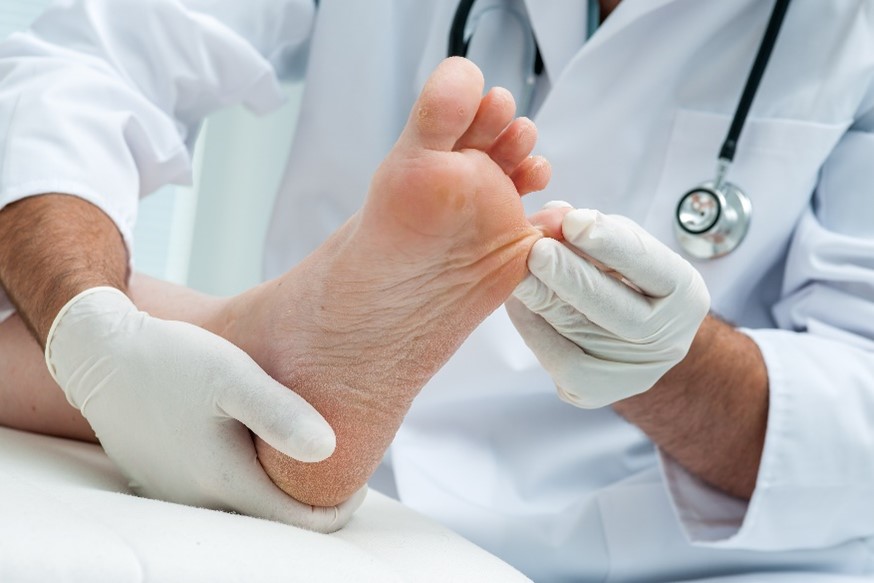
We are honored to have Dr. Rodney Bland, DPM as a guest on the blog to discuss diabetic foot care!
“People with diabetes can develop many different foot problems. Even ordinary problems can get worse and lead to serious complications. Foot problems most often happen when there is nerve damage, also called neuropathy. This can cause tingling, pain (burning or stinging), or weakness in the foot. It can also cause loss of feeling in the foot, so you can injure it and not know it. Poor blood flow or changes in the shape of your feet or toes may also cause problems.
Take good care of your feet and see your doctor right away if you see any signs of foot problems.
Take care of your feet.
When you have diabetes, caring for your feet is very important in avoiding serious foot complications. Take care of your feet by doing the following:
Wash your feet thoroughly everyday
Dry them thoroughly, and don’t forget to dry between your toes
Moisturize your feet, but avoid moisturizing between your toes
Keep your toenails trim, and use an emery board to file down sharp edges
Check your feet for sores, cuts, blisters, corns, or redness daily. Let your doctor know if you find any of these.
Wear moisture-wicking socks
Before putting your shoes on, check for sharp objects (i.e. small rocks)
Wear shoes that fit well and don’t rub your feet
While you’re at it, avoid these:
Don’t walk around barefoot
Don’t soak your feet
Don’t smoke”
Source: https://diabetes.org/about-diabetes/complications/foot-complications
The above guidelines from the American Diabetes Association are the most basic things one can do to prevent complications of your feet. I strongly recommend inspecting your feet nightly, especially between the toes. If you are unable to do so physically, even with a hand-held mirror, have a family member do it for you. Look into your shoes and shake them upside down to make sure there are no foreign objects. This is especially important if you have toddlers or pets in the home. If your feet look different in color, shape or temperature in a short period of time, contact your PCP or podiatrist asap. If you smell an odor or your pet is trying to lick your toes, it may then be emergent.
One of the most important things you can do as a diabetic is to stay as close to your hemoglobin A1C target as possible. You will have daily up and down sugars but your three month average is critical.
I will be glad to answer any general questions; however, specific medical advice as a patient only.

Rodney L. Bland, DPM
Bland Foot Care, PLLC
101 S College Dr
Franklin, VA 23851
(757) 517-0465 Main
(757) 517-0575 Fax
Website: rodneyblanddpm.com/
